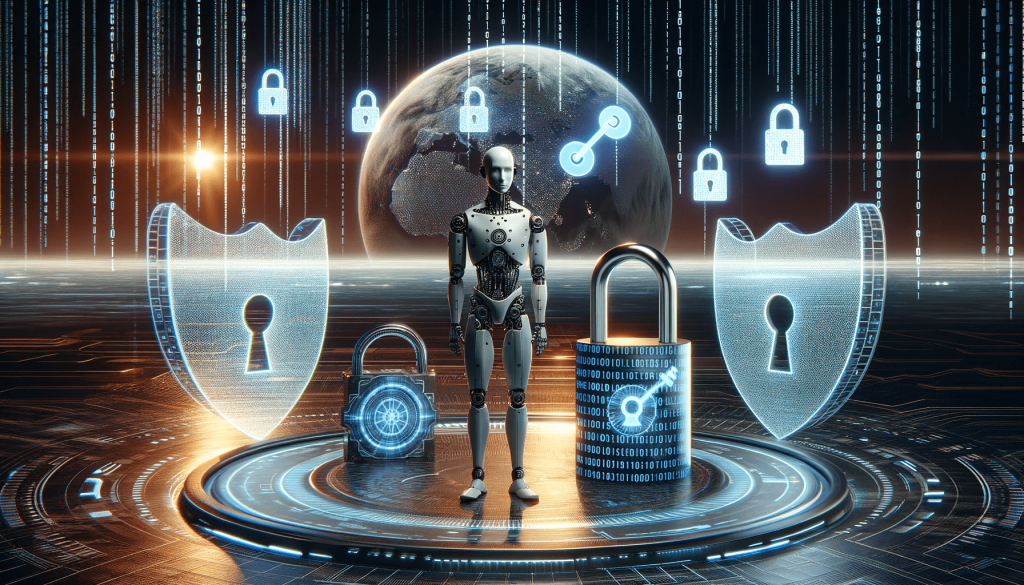We are starting 2024 full of enthusiasm with our New Year’s resolutions. Alongside financial and sporting goals, one of the most common resolutions is certainly to take more time to read in our stressful everyday lives. We would like to help you with this and give you 6 book tips on digital topics that you should read in the new year to keep on top of all the technical innovations.
Book Tips

1. “The Second Machine Age: Work, Progress, and Properity in a Time of Brilliant Technologies” (2014)
In their groundbreaking work “The Second Machine Age: Work, Progress, and Properity in a Time of Brilliant Technologies”, MIT economists Erik Brynjolfsson and Andrew McAfee explore the profound changes that the digital revolution will bring to our working world and society. The book is a fascinating journey through the latest advances in technology, particularly in areas such as artificial intelligence, robotics and digital networks. Brynjolfsson and McAfee argue that we are at the dawn of a new era – as revolutionary as the Industrial Revolution – which they call the “Second Machine Age”. This age is characterised by exponential advances in technology and its application in almost all areas of life. The book provides food for thought by highlighting both the enormous potential of these developments and the associated challenges – such as the impact on the labour market and income distribution. “The Second Machine Age” is a must-read for anyone who wants to understand how digital technology is shaping our world and what these changes mean for the future of work and prosperity.
2. “The Age of Surveillance Capitalism: The Fight for a Human Future at the new Frontier of Power” (2019)
In “The Age of Surveillance Capitalism” by Shoshana Zuboff from 2019, the profound effects of digital surveillance in our modern society are highlighted. In this book, Zuboff, a Harvard professor emeritus, paints a detailed picture of how large technology companies such as Google and Facebook have entered a new economic system that she calls “surveillance capitalism”. This involves the collection and analysis of vast amounts of personal data, which is used to predict and influence people’s behaviour. Zuboff warns urgently of the dangers that these practices pose to individual autonomy and democratic structures. Her book is a compelling and informed analysis that highlights the urgent need for social and regulatory change to protect privacy and individual freedom in an increasingly digitalised world. “The Age of Surveillance Capitalism” is essential reading for anyone who wants to understand the hidden mechanisms behind our networked world and advocate for a more humane future of digitalisation.
3. “Ada und die Algorithmen: Wahre Geschichten aus der Welt der künstlichen Intelligenz” (2021, only in German available)
“Ada und die Algorithmen” (Ada and the Algorithms) by Stefan Buijsman, published in 2021, is a captivating and accessible book that opens up the world of algorithms and artificial intelligence in a unique way. Buijsman, a young and talented philosopher specialising in the philosophy of mathematics, introduces readers to the fascinating story of mathematician and computer pioneer Ada Lovelace. Through Lovelace’s life story, he unfolds a comprehensive picture of how algorithms are developed and how they influence our everyday lives in the modern world. The book is not only a tribute to one of the first female computer programmers, but also an instructive journey through the foundations and ethical issues of artificial intelligence. Buijsman succeeds in presenting complex topics in an understandable and engaging way, making “Ada and the Algorithms” a must-read for anyone interested in history, maths and the impact of technology on society.
4. “Künstliche Intelligenz und der Sinn des Lebens” (2020, only in German available)
In “Künstliche Intelligenz und der Sinn des Lebens” (Artificial Intelligence and the Meaning of Life: An Essay), published in 2020, renowned German philosopher and author Richard David Precht delves into the complex and often controversial issues surrounding artificial intelligence. Precht, known for his ability to make philosophical concepts accessible to a wide audience, poses fundamental questions about the role of AI in our society in this work. He reflects on the ethical and existential implications that arise from the increasing presence and development of AI technologies. From the future of work to the question of what it means to be human in a world where intelligent machines are becoming increasingly ubiquitous, Precht invites readers to engage in a profound examination of the philosophical and moral challenges of the digital age. His essay is not only a critical analysis of technological development, but also a provocative and inspiring exploration of the meaning of human life in the face of a rapidly changing world.
5. “Data and Goliath: The Hidden Battles to Collect Your Data and Control Your World” (2015)
In his insightful book “Data and Goliath: The Hidden Battles to Collect Your Data and Control Your World”, published in 2015, security expert Bruce Schneier provides a critical analysis of current surveillance practices in our digital world. Schneier, known for his expertise in data protection, sheds light on the dark side of mass surveillance by governments and large corporations and its impact on individual privacy and freedom. With a deep understanding of complex technical contexts, he shows how our personal data is collected, analysed and often misused. He not only provides a detailed account of the problems, but also presents practical solutions and strategies on how we as individuals and as a society can protect ourselves from these invasions of our privacy. “Data and Goliath” is a wake-up call for vigilance and active engagement for data protection and digital rights, essential for all who live in today’s connected world and value their privacy.
6. “The Cathedral and the Bazaar” (1999)
“The Cathedral and the Bazaar” by Eric Raymond, published in 1997, is considered a seminal work that sheds light on the philosophy and practice of open source software. In this essay, Raymond compares two fundamental development models of software development: the top-down, cathedral model that characterises many proprietary software projects, and the decentralised, community-oriented bazaar model that underpins open source projects such as Linux. Raymond, an experienced software developer and a leading thinker in the open source movement, argues passionately in favour of the benefits of the bazaar model, particularly in terms of creativity, efficiency and quality. His book is not only an in-depth analysis of the technical aspects of software development, but also a lively plea for an open, collaborative way of working, which forms the basis for many of today’s innovations in technology. “The Cathedral and the Bazaar” is therefore essential reading for anyone interested in the history and future of software development and the cultural impact of the open source movement.
Pascal founded ViOffice together with Jan in the fall of 2020. He mainly takes care of marketing, finance and sales. After his degrees in political science, economics and applied statistics, he continues to work in scientific research. With ViOffice, he wants to provide access to secure software from Europe for everyone and especially support non-profit associations in their digitalization.


